
2024 Activities
Continuous Training
Continuous judicial training is an important aspect of maintaining and enhancing the professional skills and competencies of European justice practitioners throughout their careers. With its initial training offering, EJTN provides an extensive range of training and exchange activities dedicated to judges and prosecutors in service with the final objective of improving the quality of justice in the EU Member States.
Exchanges
Overview
EJTN’s Exchange Programme offers one-of-a-kind learning experience with direct contacts with courts, prosecution offices and judicial training institutions across EU Member States. By engaging in peer-shadowing or joining groups of judges, prosecutors, court staff and trainers coming from several countries, participants gain valuable insights and understanding of different EU legal systems, share best practices to improve their professional practice and expand their sense of mutual trust for a better cross-cooperation in the future.
Achievements in 2024
In 2024, a total of 1,538 justice practitioners, representing 29 countries (including the United Kingdom and Western Balkans countries) took part in an exchange. This includes 368 tutors who welcomed colleagues from another country in their court or prosecution office. Overall, 372 individual or group exchanges were organised.
Two important pilot projects were introduced in 2024: one enabling court staff to participate in specialised exchanges in dedicated areas, and another allowing court staff managers to take part in the newly renamed exchanges for judicial leaders.
Digitalisation emerged as a key focus, frequently discussed during exchanges, and it became both a specialisation within the court staff exchanges and a central theme for the exchanges for judicial leaders.
An informational video was produced to further support potential applicants, detailing the various exchange formats and guiding viewers through the application process.
The Exchange Programme Working Group also set up an ad hoc group to define best practices for the court staff exchanges. This initiative will assist the host institutions in fine-tuning their programme when welcoming court staff to an exchange.
“EJTN’s Exchange Programme offers one-of-a-kind learning experience with direct contacts with courts, prosecution offices and judicial training institutions across EU Member States.”

Related content
Project-Based Exchanges
Overview
Project-based exchanges empower European judges, prosecutors, court staff and trainers to design and implement training activities tailored to their professional needs and interests. These exchanges promote collaboration, cross-border cooperation and the sharing of experience and best practices among EU practitioners. Project-based exchanges remain a format to favour for any judge, prosecutor, court staff or trainer who wishes to advance skills in areas not usually covered by the exchanges and foster cross-border collaboration with colleagues from other EU Member States.
Achievements in 2024
In 2024, project-based exchanges welcomed 262 participants representing 18 EU Member States.
Several key advancements were made under this exchange type, including unique projects designed to address specific learning objectives tailored to the participants’ training needs.
In the judiciary learning grant programme, EU justice practitioners discussed critical topics like prosecutorial practices in combating hate crimes, discrimination, and domestic violence. Regional exchanges fostered cross-border judicial cooperation, enhancing collaboration between neighbouring courts and prosecution offices. Moreover, cross-functional EJTN-CEPOL exchanges improved cooperation between the judiciary and law enforcement, helping build a more integrated and effective judicial network.
An informational video was also produced to explain the different project-based exchange formats and guide viewers through the application process.
“These exchanges promote collaboration, cross-border cooperation and the sharing of experience and best practices among EU practitioners.”
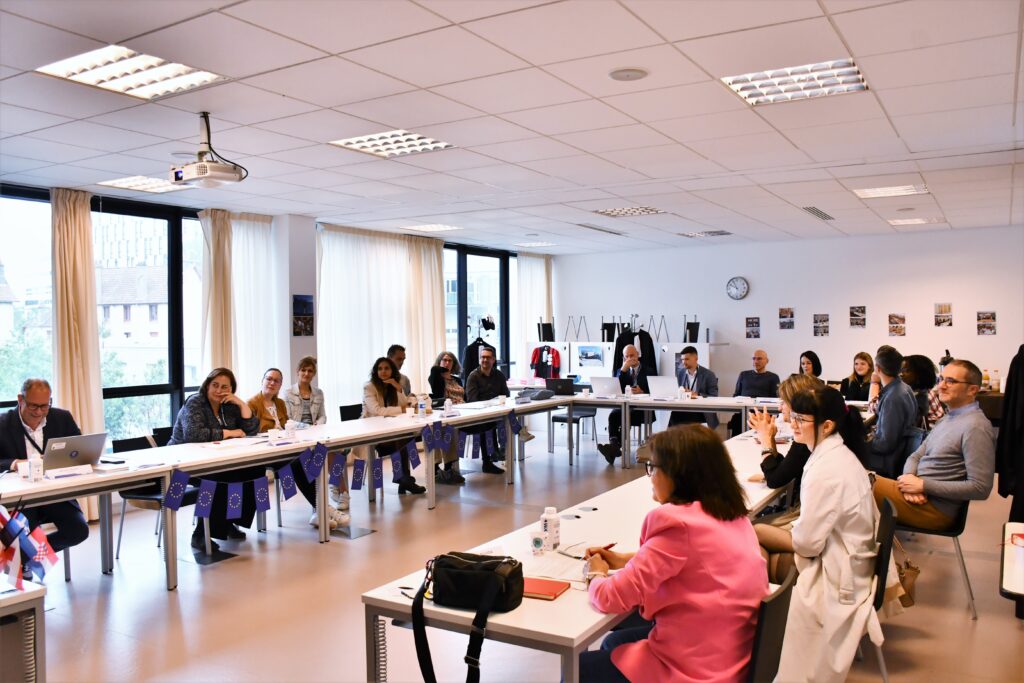
Long-Term Training Periods
Overview
EJTN’s long-term training periods immerse judges and prosecutors in the work of the Court of Justice of the European Union, the European Court of Human Rights, the European Public Prosecutor’s Office and Eurojust. Participants gain hands-on experience with cases, research and documentation while deepening their knowledge of EU law, human rights and judicial cooperation. Since its launch in 2007, the programme has continued to offer participants a unique chance to develop expertise in European judicial cooperation, build lasting professional relationships and contribute valuable knowledge upon returning to their national judicial systems.
Achievements in 2024
In 2024, 80 participants from 18 EU Member States joined long-term training periods in four host institutions, gaining valuable experience that was widely praised for its positive impact on their careers and personal growth.
The launch of the first long-term training programme at the EPPO was a notable success, receiving excellent feedback. To deepen participants’ engagement, EJTN and the EPPO will start future training periods as of September 2025. The strong collaboration between the two organisations continues to build a solid foundation for future partnerships.
EJTN also created an informational video for judges and prosecutors interested in long-term training periods. The video provides an overview of the opportunities available and a step-by-step guide on how to apply successfully.
Moreover, the Exchange Programme Working Group began reviewing the evaluation tools for long-term training periods, aligning them with the Kirkpatrick model and EJTN’s own standards outlined in the handbook on ‘Medium- to Long-term Evaluation of Judicial Training’.
Our participants say…
The long-term training periods at the Court of Justice of the European Union, intended for national judges, are probably the most ambitious and important programmes established by the European Judicial Training Network. Thanks to this opportunity, the close cooperation that must exist between national judges and the judges of the Court of Justice is not merely a formality, limited to the preliminary ruling procedure. On the contrary, it takes on a concrete dimension through personal relationships established between the judges of the Court of Justice and those from the national courts of the different Member States. – CJEU 2023/2024
For anyone considering this programme, be prepared for a dynamic and intellectually stimulating environment. The insights gained and the skills developed during this training period will be invaluable, whether you choose to pursue a career within the EPPO or apply the knowledge and experience gained to your national legal system. The opportunity to contribute to such a pivotal institution and its mission is a profound professional and personal growth experience. – EPPO 2024
During my time at the European Court of Human Rights in Strasbourg, I found the EJTN long-term exchange programme to be a deeply immersive and enriching experience. I had the privilege of working closely with senior case lawyers and other legal professionals. This hands-on experience provided me with a comprehensive understanding of the ECtHR’s operations and the practicalities of applying European human rights law. – ECtHR 2023/2024
“The launch of the first long-term training programme at the EPPO was a notable success, receiving excellent feedback.”
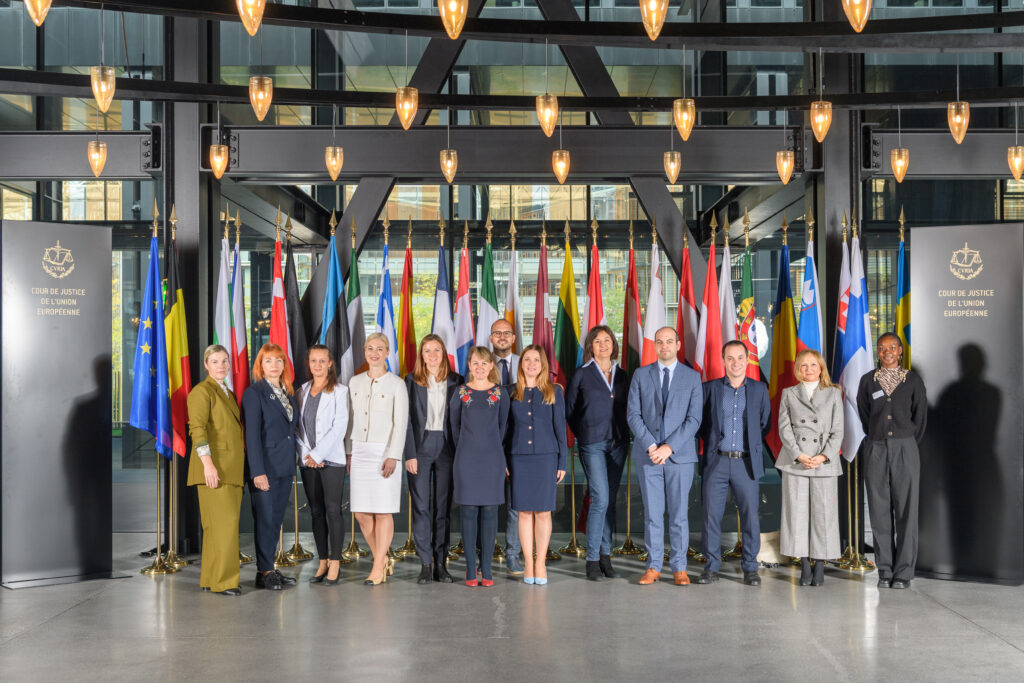
Related content
Study Visits
Overview
EJTN organises study visits to prestigious European courts and institutions, including the Court of Justice of the European Union, the European Public Prosecutor’s Office, Eurojust, the European Court of Human Rights, key EU institutions, such as the Commission, the Parliament and the Council, the EU Agency for Fundamental Rights, the UN Office on Drugs and Crime, and the Max Planck Institute for Social Anthropology. These visits provide judges, prosecutors, court staff and judicial trainers from EU Member States with a unique opportunity to engage with professionals, exchange insights, and deepen their understanding of the host institution.
Achievements in 2024
During 2024, EJTN organised 15 study visits, welcoming 479 participants of 24 different countries including the United Kingdom. The programme was highly praised for its engaging content and contributions from professionals working at partner institutions, including judges from the CJEU and the ECtHR.
A key highlight of 2024 was the joint visit to the CJEU and EPPO in November, which featured a speech by Judge Gabriele Steinfatt and an address by the EJTN Secretary General Ingrid Derveaux. Additionally, the first-ever specialised study visit to the EPPO in July provided criminal law judges, investigative judges and prosecutors dealing with financial and economic crime cases essential knowledge on the work and role of the EPPO applicable in their daily work.
Participants observed impactful hearings, such as Kovačević v. Bosnia and Herzegovina at the ECtHR and Austria’s appeal in Case T-101/18 at the CJEU.
These visits offered unparalleled opportunities to connect with top legal professionals, explore critical cases, and enhance knowledge of Europe’s judicial landscape.
“During 2024, EJTN organised 15 study visits, welcoming 479 participants of 24 different countries.”
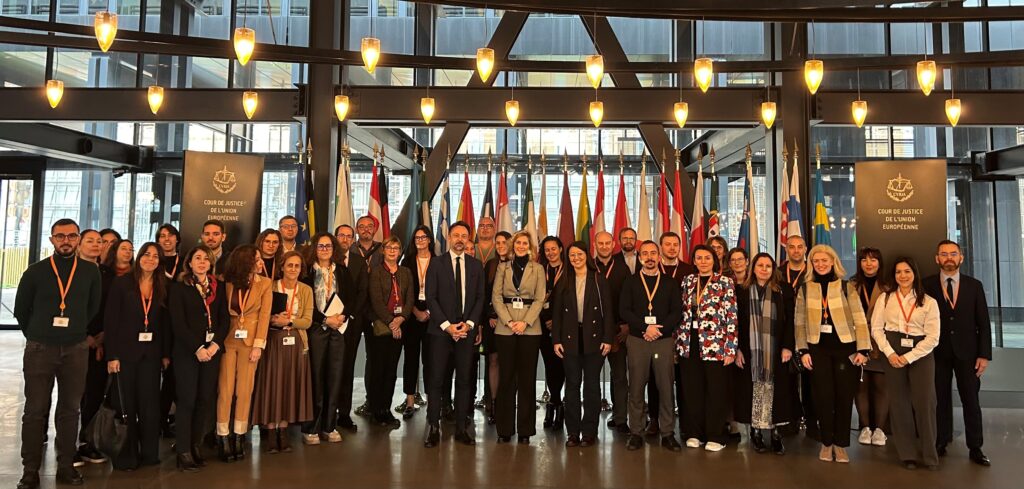
Related content
Administrative Law
Overview
Since 2011, EJTN has offered training on administrative law to enhance the understanding of European judges, prosecutors, court staff, and trainers about the EU’s administrative law framework. This portfolio is overseen by the Sub-Working Group on Administrative Law and delivered in partnership with institutions such as the Court of Justice of the European Union, the European Union Agency for Asylum, the Association of the European Administrative Judges, the Council of Europe, and the Max Planck Institute for Social Anthropology.
Achievements in 2024
In 2024, 16 training activities brought together 626 justice practitioners from 25 EU Member States.
Moreover, a major innovation was introduced with the expansion of training sessions for court staff and the addition of four new topics: The Role of Administrative Judges and Court Staff in the State, The Role of Court Staff in Justice – Deontology and Ethics, The Protection of Cross-Border EU Investments, The Framework of Tax Crimes in the EU and Basic Notions of Antitrust Law.
Other activities under the administrative law portfolio focused on areas such as the judiciary’s role, digital market, taxation, digitalisation and the use of AI in administrative procedures, asylum and immigration laws, state aid, antitrust and environmental laws, data protection and privacy, public procurement and cross-border EU investments.
“In 2024, 16 training activities brought together 626 justice practitioners from 25 EU Member States.”
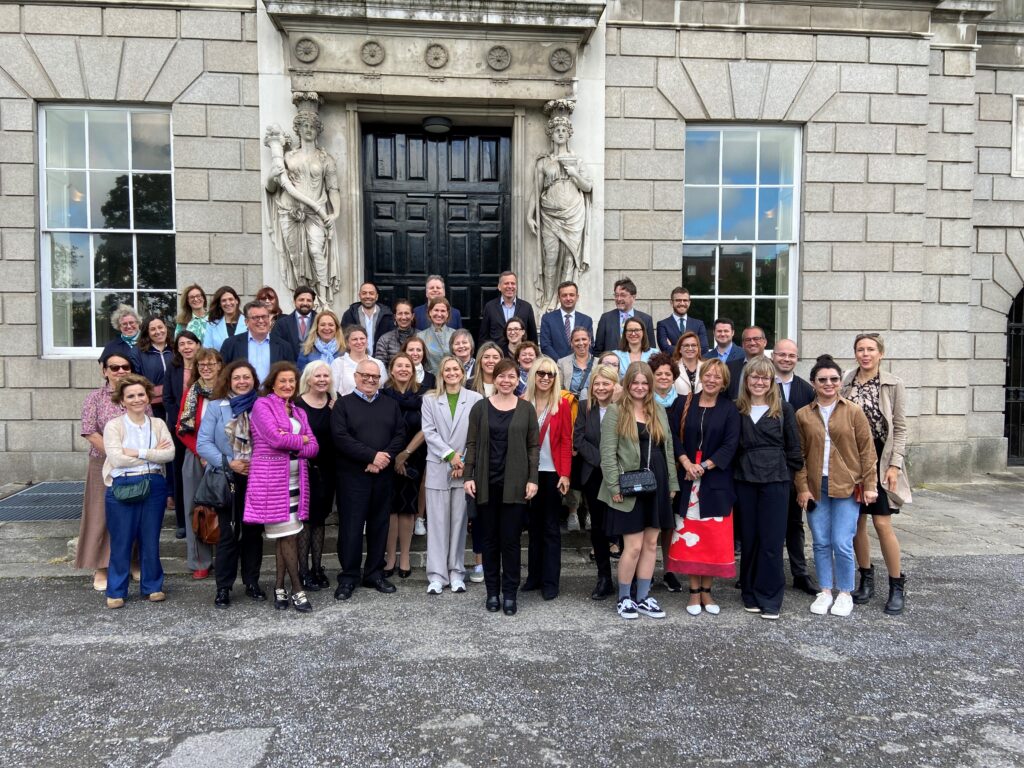
Related content
Civil Law
Overview
EJTN’s civil law activities provide training for judges, prosecutors, court staff and trainers on EU legal frameworks with a cross-border focus. The goal is to enhance mutual trust and cooperation within the judiciary, covering topics from family and company law to AI and digitalisation’s impact on civil proceedings. Developed and coordinated by the Sub-Working Group on Civil Law, the seminars use interactive and innovative methods, case studies and expertise from partners like the Court of Justice of the European Union, the European Commission and GEMME, with a focus on e-CODEX for improving EU judicial cooperation.
Achievements in 2024
In 2024, 13 training activities, one learning video and one training course executed in collaboration with the HELP Programme of the Council of Europe were delivered under this portfolio. The overall purpose of the year’s activities was aimed at advancing the digital transformation of justice, with a strong focus on tools such as e-CODEX. Other topics included, for example, consumer protection in the digital era, civil liability in the contexts of AI, EU sanctions as well as family and labour law.
Moreover, the Sub-Working Group on Civil Law launched two forward-looking initiatives:
- Online course on Insolvency and Over-Indebtedness Proceedings was developed in cooperation with the Council of Europe and the EJTN Member Scuola Superiore della Magistratura
- Learning video on the ‘Principles Guiding the Application of the 1958 New York Convention’ was produced and launched in collaboration with International Council for Commercial Arbitration (ICCA)
“The overall purpose of the year’s activities was aimed at advancing the digital transformation of justice.”
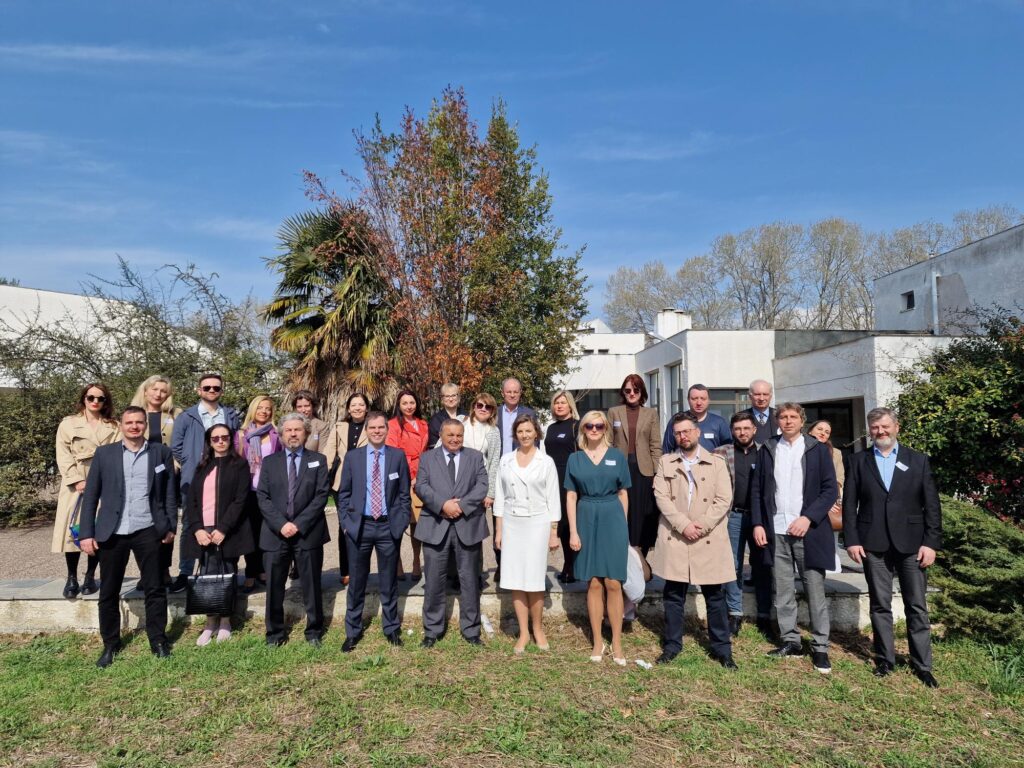
Criminal Justice
Overview
In the area of criminal justice, training activities enhance the expertise of European judges, prosecutors, and court staff in key areas of EU Criminal Law, such as human trafficking, environmental crimes, cybercrime, judicial cooperation, asset recovery, EU sanctions, financial protection, victims’ rights, and procedural safeguards.
EJTN works closely with partners including Eurojust, Europol, the Genocide Network Secretariat (GNS), the European Judicial Network (EJN), the European Public Prosecutor’s Office (EPPO), and the Joint Investigation Teams Network. Each year, EJTN also strengthens its collaboration with CEPOL to deliver seminars on serious cross-border crimes. These seminars and webinars are coordinated by the Sub-Working Group on Criminal Justice.
Achievements in 2024
In 2024, 31 activities – including face-to-face seminars, online training events, and webinars – brought together 745 participants (69 in EJTN-CEPOL training events) from 25 EU Member States. Key successes included seminars on the European Investigation Order (EIO), which highlighted the importance of access to justice through the e-Evidence Digital Exchange System (eEDES). Other major topics covered asset recovery and confiscation, collecting electronic evidence, and freezing illicit assets such as cryptocurrencies. Court staff showed particular interest in issues related to victims of specific crimes, detention conditions and alternative measures in the EU, juvenile justice and defendants’ rights.
Additionally, the EJTN-ERA Consortium completed its training activities for the year under the Framework Contract for Services JUST.EPPO/LUX/2020/OP/000 and submitted a final report.
“In 2024, 31 activities – including face-to-face seminars, online training events, and webinars – brought together 745 participants.”
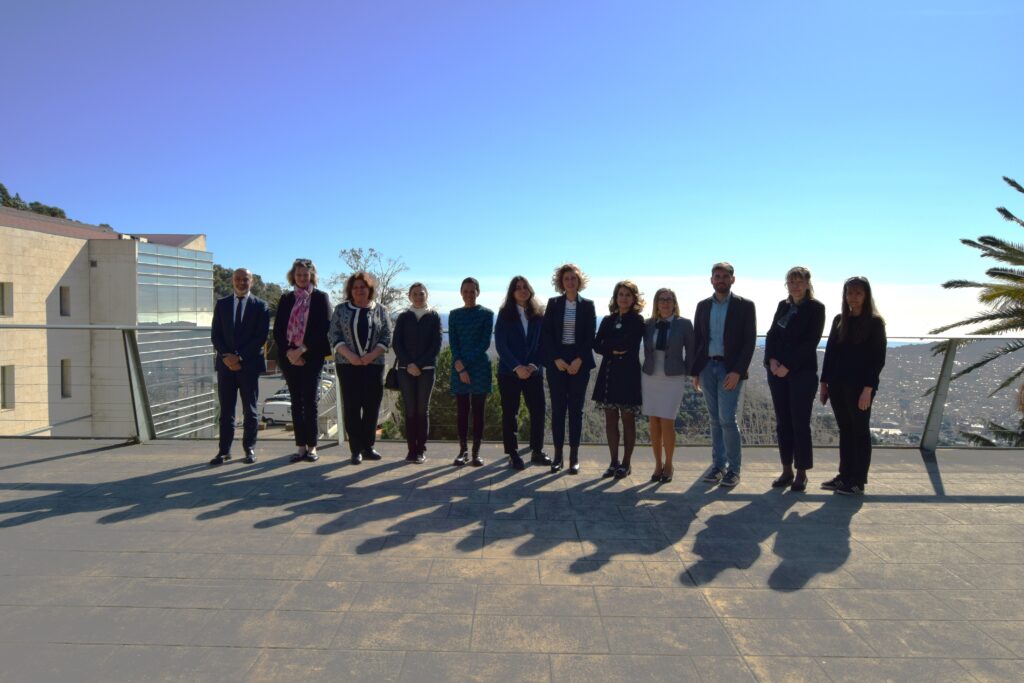
Human Rights and Fundamental Freedoms
Overview
The EJTN activities in the field of human rights and fundamental freedoms are coordinated by a dedicated Sub-Working Group that reunites twice a year to develop and implement an innovative and tailored training offering, executed in collaboration with high-level partners, for European judges, prosecutors, court staff and trainers. These activities provide a platform to discuss recent developments, enhance expertise in human rights law and promote fundamental freedoms, thus supporting EJTN’s mission to strengthen the Rule of Law across Europe.
Achievements in 2024
In 2024, a total of 325 judges, prosecutors, court staff, and trainers from 22 EU countries and one Western Balkan country participated in the 12 activities organised under the Human Rights and Fundamental Freedoms portfolio. Many of these activities were organised in partnership with key organisations, such as the HELP Programme of the Council of Europe, the European Union Agency for Fundamental Rights, the Association of European Administrative Judges and the Max Planck Institute for Social Anthropology.
Key training topics in 2024 included the Rule of Law, access to justice, and the dialogue between courts in the digital era. The trainings also covered the judicial protection of vulnerable groups, children, and crime victims, as well as challenges to judicial integrity, such as AI, data protection, and cultural diversity in the courtroom. These activities aimed to provide participants with the tools and knowledge to address these issues while upholding justice and fundamental rights.
“Key training topics in 2024 included the Rule of Law, access to justice, and the dialogue between courts in the digital era.”
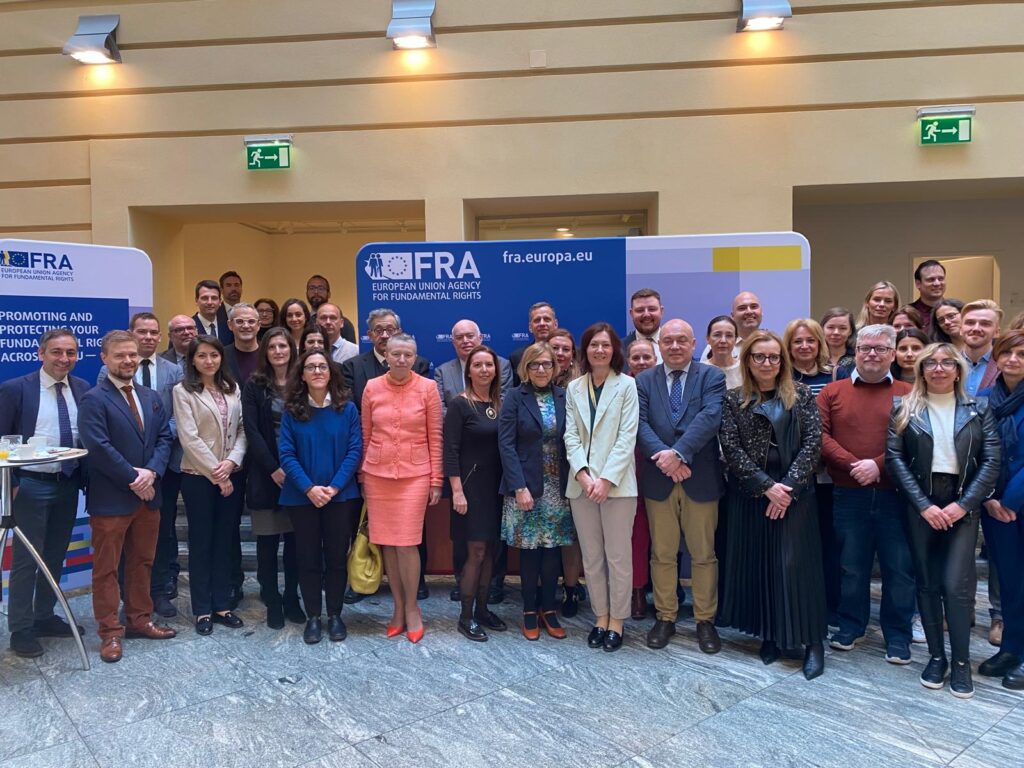
Digitalisation
Overview
In 2024, EJTN continued to equip Europe’s justice practitioners with cutting-edge skills related to the digital transformation of justice. Delivering training activities on emerging technologies such as Artificial Intelligence, EJTN demonstrated its competence in supporting the digitalisation efforts of its members. Through these initiatives, EJTN plays an important role in ensuring that Europe’s judges, prosecutors, and court staff possess the expertise needed to uphold the Rule of Law in an increasingly complex digital environment, with a particular emphasis on the continued integration of EU legal frameworks.
Achievements in 2024
The first face-to-face meeting of the EJTN Working Group on Digitalisation took place in 2024, with delegates approving strategic initiatives, such as new platforms and ‘Digital passport’, which will certify individuals as EJTN Digital Ambassadors upon mastering key skills from the Digital Competence Framework for Justice Personnel. Additionally, the Working Group provided valuable input into EJTN’s broader digital strategy.
In June, during the Extraordinary General Assembly held in Brussels, EJTN launched its Digital Park for the first time. This interactive digital expo provided participants with opportunities to explore VR case scenario simulations, online linguistic testing, videos for EJTN Activity Coordinators, and other digital initiatives undertaken by EJTN and its stakeholders. The Digital Park was visited by over 100 participants and received excellent feedback.
Key events on digitalisation took place in 2024: In July, EJTN partnered with UNESCO to host a groundbreaking seminar on the ethical and legal challenges posed by Artificial Intelligence. In October, more than 60 EJTN Activity Coordinators from across Europe participated in a webinar titled ‘Digital Transformation and Instruments of Cooperation,’ where the focus was on anticipating the implementation acts to be taken by the European Commission and planning timely, relevant training activities to support the digital transition of judicial cooperation within the EU in the coming years. In November, EJTN joined UNESCO’s global event on the practical applications of AI, drawing over 1,500 participants worldwide. Moreover, EJTN supported and contributed to the forward-thinking digital initiatives of its members, including the launch of virtual classroom by the Centre for Judicial Studies in Portugal.
In total, 165 participants attended the three dedicated digital training activities held by EJTN in 2024. Other relevant and timely activities will take place in 2025.
“The first face-to-face meeting of the EJTN Working Group on Digitalisation took place in 2024.”

Linguistics
Overview
Launched in 2011, EJTN’s linguistics seminars train European judges, prosecutors and court staff in legal English, French, German, Spanish and Italian. The programme enhances linguistic and legal skills, fostering cross-border cooperation and a shared legal culture. Covering civil, criminal, family, and human rights law, it includes specialised sessions on asylum and organised crime. Led by linguistic and legal experts, the seminars blend theory with practical tools. Alongside high-quality in-person training, EJTN offers popular Online Conversation Classes and freely available legal language handbooks.
Achievements in 2024
In 2024, the linguistics portfolio delivered a total of 56 training activities: 10 face-to-face seminars that engaged 372 participants as well as 46 Online Conversation Classes, bringing together 444 participants. A key achievement was the launch of a joint seminar titled ‘English for Judicial Leaders’, organised with the Working Group on Judicial Training Methods. This pilot initiative successfully implemented blended learning, combining face-to-face and online sessions.
Furthermore, linguistic experts published a comprehensive Spanish language handbook on legal terminology and judicial cooperation in civil matters, further enriching EJTN’s resources for legal professionals. These key milestones highlight the ongoing growth and impact of EJTN’s linguistics programme in strengthening the legal language skills of Europe’s justice practitioners.
“Linguistic experts published a comprehensive Spanish language handbook on legal terminology and judicial cooperation in civil matters.”
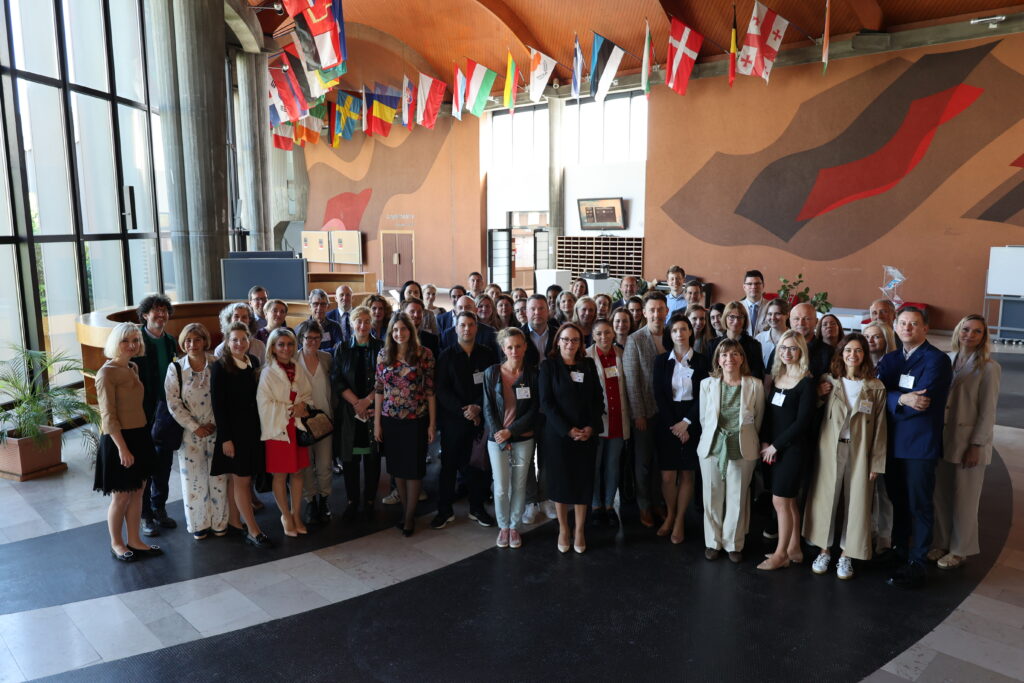
Judicial Training Methods
Overview
The Working Group on Judicial Training Methods (JTM) advances methodology and evaluation in judicial training, notably by training the EJTN Activity Coordinators. It serves as a forum for Training the Trainers, sharing best practices and creating judicial training guidelines. Key topics for this working group include innovation in judicial training, including the use of digital tools, judgecraft and ethics, and leadership training.
Achievements in 2024
In 2024, the JTM Working Group marked its 10th anniversary. During this pivotal year, the working group hosted 13 training activities that showcased the diversity of EJTN’s training formats: online training, seminars but also hybrid training for a total of 289 participants. Six of these activities were dedicated to the judicial trainers to support them in the use of new technologies, Virtual Reality or pedagogical innovations. The working group also implemented the Kirkpatrick Evaluation Model by introducing Level 3 delayed surveys and Level 4 focus groups to gather participant feedback.
Two forward-looking initiatives were also launched by this working group in 2024:
- A Comparative Study of Judicial Training Institutions aiming to draw an overview of judicial training systems and to share best practices (the survey results will be made available in October 2025)
- A sub-group on Women in Justice which will develop a specific training offering that tackles the issue of gender equality
“In 2024, the JTM Working Group marked its 10th anniversary.”
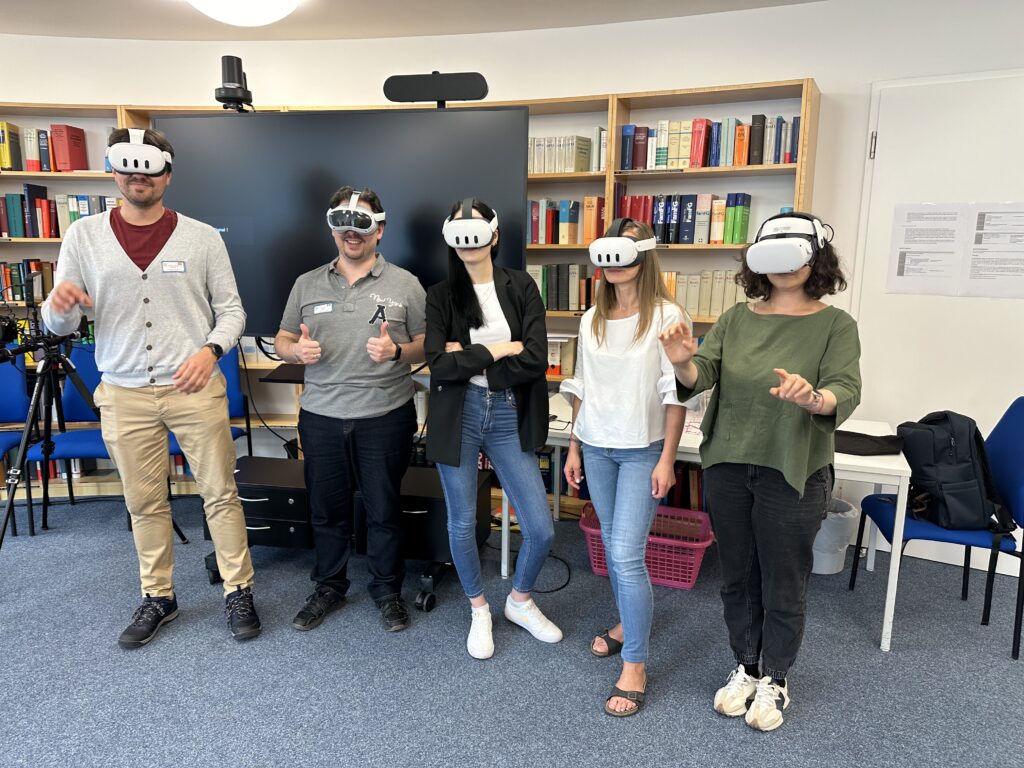
Related content
- The European Judicial Training Network and Scuola Superiore della Magistratura: Empowering Judicial Leaders Across Europe
- Revolutionising judicial training: EJTN seminar showcases the potential of Virtual Reality
- Training the EJTN Activity Coordinators: empowering the architects of judicial training
Catalogue+
Overview
EJTN’s Catalogue+ programme upgrades existing training courses of EJTN’s Members and finances international participation in these. These courses, available to European judiciary, cover a wide range of legal fields and offer participants a valuable opportunity to attend various training courses organised by the EJTN Members.
The objective of the programme is to transform training activities organised by national judicial training institutions into cross-border events, allowing up to 10 judges and prosecutors from other European Union countries to participate.
Achievements in 2024
In 2024, 12 EJTN Members contributed to the Catalogue+ programme. A total of 224 participants from 12 EU countries attended 23 training activities (online or in-person) organised under this framework.
Participants consistently expressed their high appreciation for the quality of the training activities, including the experts delivering the trainings, the wealth of information shared and the international atmosphere.
“In 2024, 12 EJTN Members contributed to the Catalogue+ programme.”
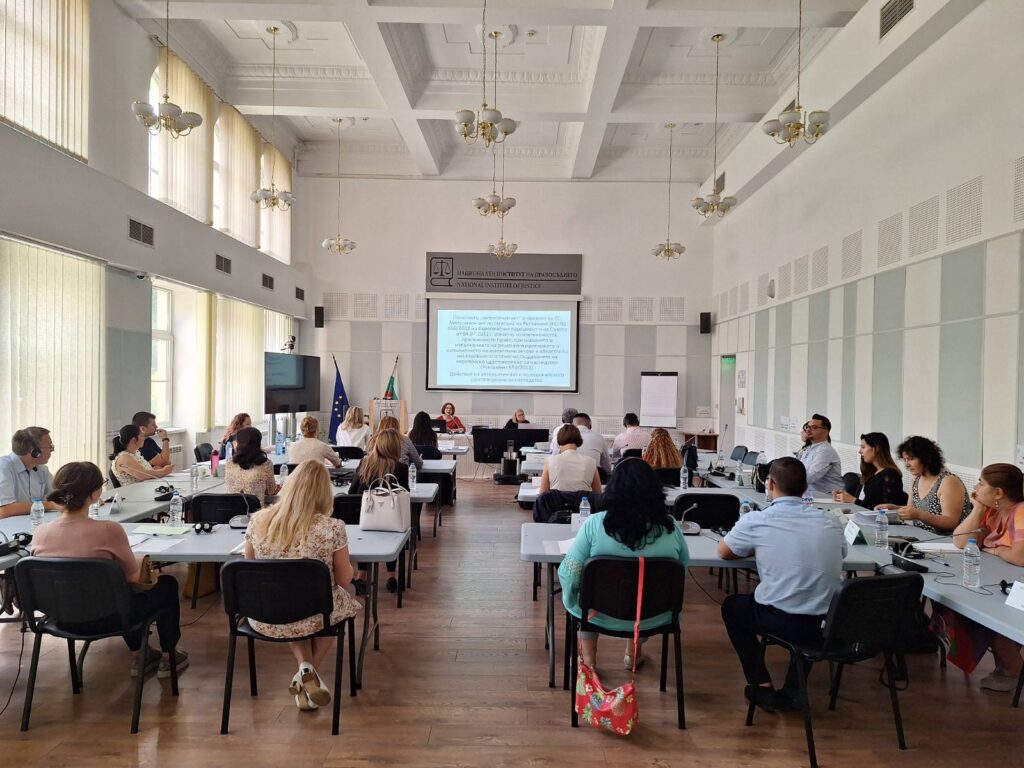
Related content
Catalogue of Members’ Activities
Overview
The Catalogue of Members’ Activities was created in 2003, and it has been an important tool for promoting judicial training across the European Union ever since. This initiative promotes various judicial training events, integrating the activities organised and selected directly by EJTN Members. Numerous law topics are covered, which gives participants an opportunity to strengthen their knowledge of EU law, improve language skills and gain insights into national laws relevant to their work.
Achievements in 2024
In 2024, the Catalogue of Members’ Activities implemented 126 seminars, which were attended by 69 participants. The participants included:
- 52 Judges (2 from Austria, 1 from Bulgaria, 1 from Czechia, 1 from Germany, 1 from Estonia, 9 from Italy, 1 from Malta, 2 from Poland, 33 from Romania, 1 Slovenia)
- 5 Prosecutors (1 from Bulgaria, 1 from Poland, 3 from Slovenia)
- 5 Court Staff (5 from Italy)
- Others (1 from Slovenia, 6 from ERA)
“In 2024, the Catalogue of Members’ Activities implemented 126 seminars, which were attended by 69 participants.”
